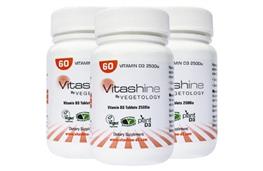Vitamin D
The Worlds Science
Vitamin D is essential for the growth and maintenance of bones, muscle and teeth. It enhances your immune system and may therefore reduce the risk of infection and cancer.
What is vitamin D?
Vitamin D is a fat-soluble vitamin essential for bone health. It is also good for your immune system and therefore plays an important role in the prevention of infection and disease.
Why does it matter to me?
The majority of vitamin D is produced by the action of sunlight (UVB) on the skin. However, we now spend much more time inside buildings than we did in the past. Beacause of this the number of people suffering from mild and severe vitamin D deficiency has increased in recent decades1.
Therefore, it is more important than ever that we consume a diet that contains high levels of vitamin D.
- Vitamin D ensures that good bone health is maintained as it is important in the regulation of calcium and phosphorus metabolism and contributes to the maintenance of normal calcium levels in the blood3.
- Vitamin D is also important to maintain the health of skeletal muscles6.
- Vitamin D may help the immune system to reduce the severity and longevity of some infectious diseases7 as every immune cell in the body responds to the presence of vitamin D.
- The immune system also helps to protect us from the development of many of forms of cancer by killing cells that begin to grow and divide abnormally8.
Watch out for..
Vegans can struggle to obtain adequate amounts of vitamin D, but the good news is that there are now several commercially available vitamin D3 supplements derived from lichen.
What happens if I don’t get enough?
Severe vitamin D deficiency can produce very serious conditions such as rickets and osteomalacia (soft bones). People suffering from these conditions experience bone pain, fragile bones, skeletal abnormalities and poor growth4.
In addition, dental problems may also be observed because dentine, which is the main structural component of the tooth, does not form properly5.
Vitamin D deficiency can increase muscle fatigue and weakness, reduce muscle mass and may also produce muscle pain6.
Because of it’s importance to the immune system it is thought that vitamin D deficiency may contribute towards the development of certain forms of cancer. This is a very fertile area of current research activity8.
Vitamin D research
If the immune system begins to function abnormally it can begin to attack the tissues of our own body. This can produce several serious conditions called autoimmune diseases.
One of the most common of these is rheumatoid arthritis in which patients often experience debilitating pain in the muscles and joints.
Sunshine and vitamin D
As discussed above vitamin D is produced by exposure of the skin to the UVB radiation component of sunlight. However, the amount of vitamin D obtained from sunlight varies according to geographical location, the amount of time spent outdoors, the time of year and whether or not high factor sun cream is used, (high factor sun cream blocks vitamin D synthesis).
In the UK, vitamin D production becomes effective from April and, following a summer of exposure, reaches maximum values in the body in September. This is followed by a decline throughout the winter months until the following spring.
This means that a significant minority of the population are vitamin D deficient during the winter. Therefore, it is especially important to ensure that, especially in winter, the diet contains enough vitamin D to maintain good health.
Levels of melanin (dark pigment) in the skin can also influence the amount of vitamin D that is produced by the action of sunlight11. Clicking on a ‘sunshine’ icon at the bottom of this page will take you to a page from which you can estimate the amount of vitamin D you are receiving during the spring and summer months12.
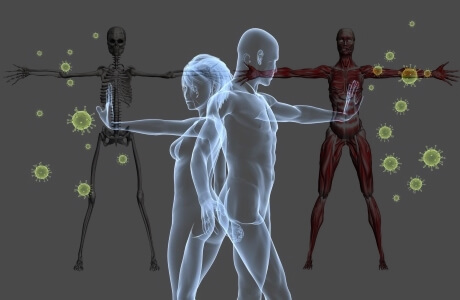
291
445
https://www.checkyourfood.com/content/blob/Micronutrients/top-foods-for-Vitamin-D.jpg
Top 6 ingredients for Vitamin D taking into account portion size and cooking retention factors
Filter ingredients by:

 About nutrients
About nutrients
 All nutrients
All nutrients
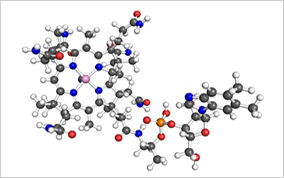 vitamins
vitamins
 minerals
minerals
 phytochemicals
phytochemicals
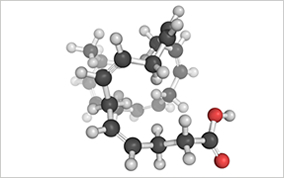 fatty acids
fatty acids
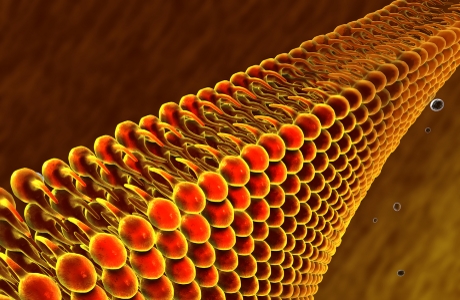 macronutrients
macronutrients
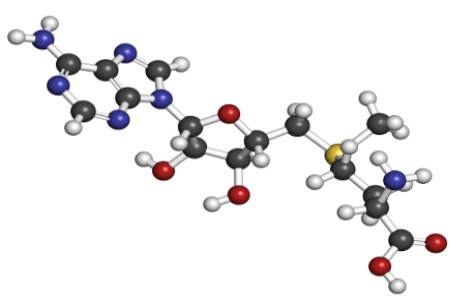 amino acids
amino acids

